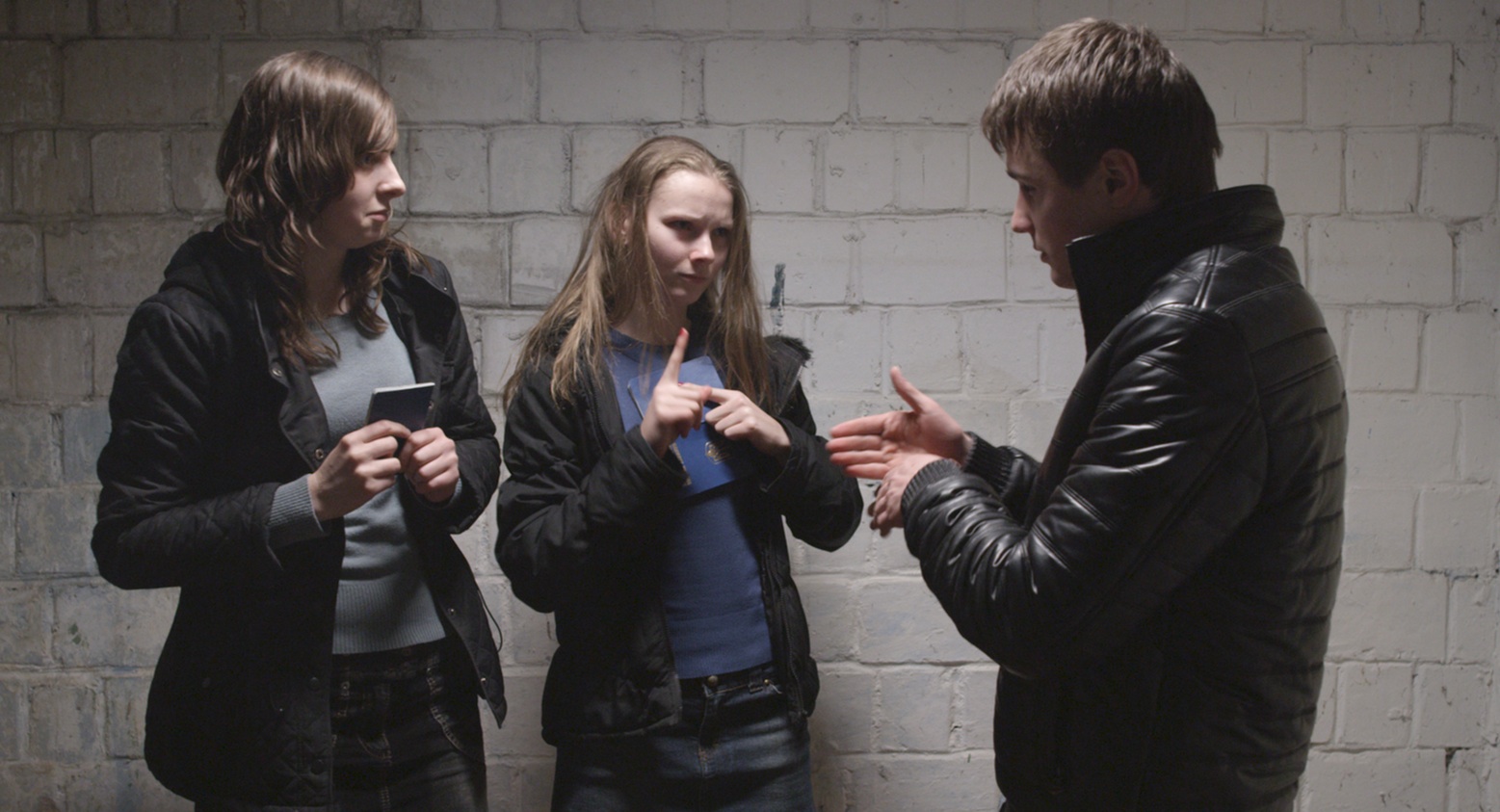CANNES, FRANCE—Seeing “Pulp Fiction” at the festival’s cinema on the beach only highlighted the lack of obvious classics at this year’s edition. Quentin Tarantino’s 1994 Palme d’Or winner celebrated its 20th anniversary tonight, and it’s hard not to wonder if any of the movies shown this year will have that kind of enduring impact. Viewers who crowded onto the city’s sand-floor theater and onto the Croisette above to watch a 35mm print applauded at such classic moments as the Jack Rabbit Slim’s dance and Mia Wallace’s emergency adrenaline shot. I watched the first hour and change, and there was a profound sense that the movie is as fresh and surprising today as ever. At Cannes 2014, there’s been a dearth of new showstoppers.
The prizes are dribbling out, and as of now, it seems like this year may go down as an especially brutal one. The Critics’ Week winner, Ukrainian director Myroslav Slaboshpytskiy’s outrageously promising debut feature “The Tribe,” is told entirely in sign language—without subtitles or any sort of translation—though it’s hardly silent or placid. It follows rise of a new pupil (Grigory Fesenko) through a criminal gang based around a boarding school for deaf students. The style of “The Tribe” takes some getting used to; I wouldn’t mind seeing the first half-hour again after getting acclimated. But the technique imbues the film with disturbing implications; the movie is not about deafness per se so much as it is about a closed-off world—about how gangs have their own language and code, inscrutable to outsiders.
Sound is very much a character in the film (Slaboshpytskiy often uses Tati-esque footsteps to build tension), as are the frequent Steadicam shots, which give the movie a perverse elegance and energy. A conflict brews as the new guy, known as Sergey in the credits, develops an obsession with one of the prostitutes (Yana Novikova) the gang sells at a truck stop. This culminates in several scenes—including a drawn-out surgical procedure—that are as rigorously staged as they are difficult to watch. For formal prowess, no first feature I saw at Cannes comes close.
Violence was also a hallmark of the top Un Certain Regard winner, Kornél Mundruczó’s “White God.” Overgeneralizing the allegory of Sam Fuller’s 1982 “White Dog”—in which Fuller turns a dog that’s been trained to attack blacks into a metaphor for racism in America—Mundruczó’s movie essentially argues that mistreatment of pets will be cosmically revisited on their owners. A mutt named Hagen, who belongs to a young trumpet player (Zsófia Psotta), is set loose on the streets of Budapest by the girl’s father (Sándor Zsótér); as the pet travels, there’s a brief indication that the movie might turn into “Homeward Bound: The Hungarian Journey.” Alas, no: The dog is sold and then beaten, trained to fight other dogs. Mundruczó had a film in the 2010 competition called “Tender Son—The
Frankenstein Project,” and that subtitle might have applied equally well
here: Hagen, forced to run on a doggy treadmill and to bare his teeth to earn his food, becomes a monster hell-bent on revenge against his creators.
Although the movie opens with a sentimental-sounding Rilke quotation (“Everything terrible is something that needs our love”), there are also hints that the movie’s allegory extends to anyone society somehow treats as undesirable. “White God” mainly impresses with its amazing, large-scale animal work, particularly a sequence depicting a large pack of dogs’ bloody escape from a shelter. The closing credits say that no animals were harmed during training or filming, and that the dogs featured in the movie were subsequently adopted through a special program. (There’s an adorable, lengthy “thank you” section listing the canines by name.) The two dogs who played Hagen shared the unofficial Palm Dog award. It was the least anyone could do; those mutts deserve hazard pay. Anyone sensitive to animal violence should stay far, far away.












